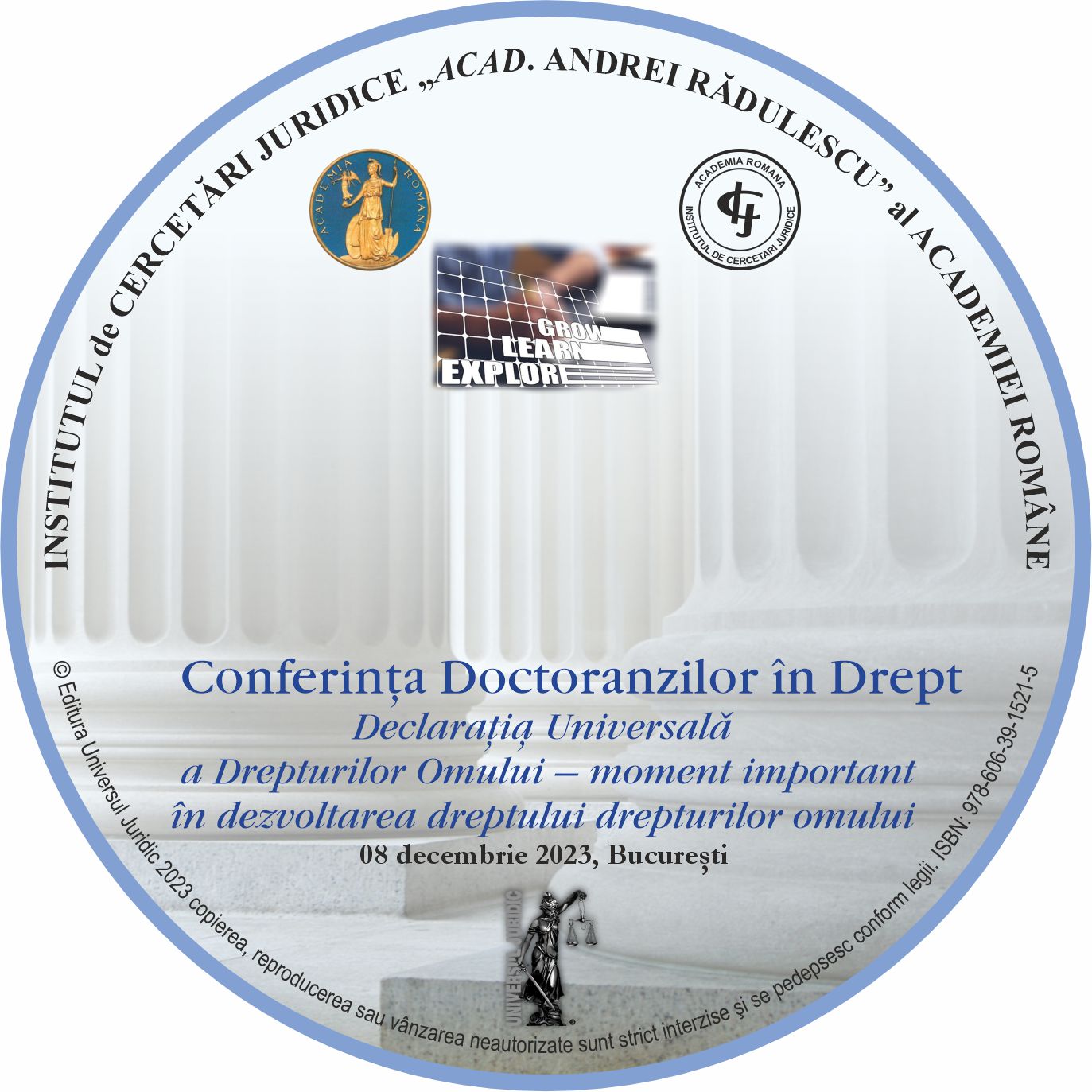Prezumția de (ne)vinovăție în cazul privării de libertate
The Presumption of Innocence in the Case of Deprivation of Liberty
Author(s): Giulia Şologon
Subject(s): Criminal Law
Published by: Universul Juridic
Keywords: The Presumption of Innocence; Deprivation of Liberty; Final Criminal Judgment; Development of Vertainty; Beyond a Reasonable Doubt;
Summary/Abstract: Although the prima facie functionality of the presumption of innocence in cases involving deprivation of liberty adheres to the parameters of legality, in practice, the probative standards outlining the coordinates of liberty-restrictive or rights-restrictive measures can readily engender a societal conviction that the individual subject to criminal proceedings is culpable of committing the offense. This inherent proclivity becomes conspicuously apparent in judicious junctures characterized by the prematurely postulated judicial intuition. The substantive concept of culpability, as an indispensable trait of an offense, conjoining volitional and cognitive aspects into a unified human representation of the repercussions of violating criminal law, is judiciously reflected in a procedural-legal concept of guilt. This concept is contingent on a tripartite determination on the part of the adjudicating body: the concrete act exists in its materiality, it legally constitutes a criminal offense (in the sense that it satisfies all the constituent elements of the typical incrimination model and has been committed with the requisite mens rea as prescribed by statutory law), and there exists an unequivocal nexus between the person who committed the specific act and the one arraigned for trial. The material foundation for ascertaining guilt at the legislatively mandated standard - beyond any shadow of reasonable doubt - resides in the presence of robust, legally sound, and faithfully administered probative evidence. Dubiety or incongruity impedes the subversion of the presumption of innocence, esteemed as a bulwark of the right to a just legal proceeding, as delineated by constitutional provisions, procedural-criminal edicts, international conventions, and reference instruments in the sphere of human rights preservation, such as the Universal Declaration adopted in 1948 by the member states of the United Nations General Assembly.
- Page Range: 62-72
- Page Count: 11
- Publication Year: 2024
- Language: Romanian
- Content File-PDF

